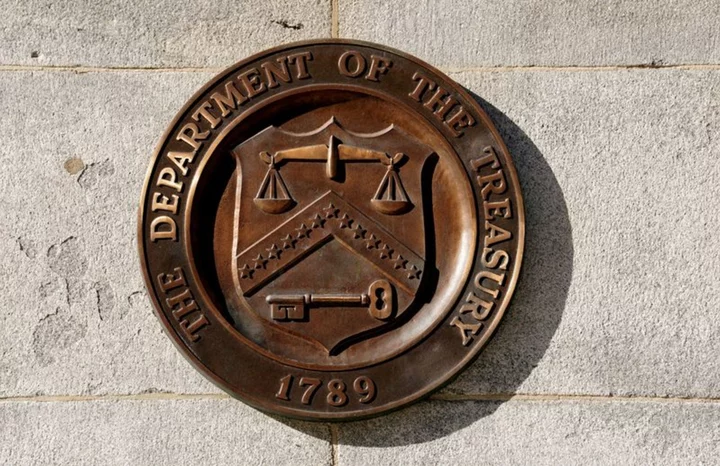By John McCrank, Laura Matthews and Michelle Price
WASHINGTON Clearing houses and their members are working out how to treat certain U.S. Treasury bills and bonds commonly used as collateral, as the United States nears a deadline that could see it default on its debt, according to four industry sources.
U.S. President Joe Biden and top Republican lawmaker Kevin McCarthy on Thursday edged closer to an agreement to raise the U.S. debt ceiling, Reuters reported. The Treasury Department has warned the government could run short of funds to cover all of its expenses as soon as June 1, meaning it could potentially miss payments on Treasury bills and other obligations.
That risk has raised doubts over whether clearing houses, which process and guarantee trades, could continue to accept certain Treasury bills and bonds commonly pledged by dealers and investors as collateral to secure their deals, the people said.
While clearing houses generally do not accept Treasury bills due to mature within days as collateral - the instruments that would be immediately affected by a potential June 1 default - there is also a question mark over whether they could continue to accept bills that expire in coming weeks, two people said.
As of Thursday, it was uncertain if clearing houses, also known as "CCPs," would eliminate such instruments from their collateral pool or subject them to big haircuts, the people said. Six clearing houses, including CME Group, Intercontinental Exchange Inc, and London Stock Exchange Group-owned LCH, contacted by Reuters declined to comment in detail on the discussions.
"We are all waiting for the CCPs to make the first move if they will haircut at a % or even at 100% as we get closer to a no resolution date," one executive at a major bank told Reuters, adding most clearing houses still believe a default is unlikely.
Clearing mandates for derivatives were a key part of post 2009 crisis reforms, reducing counterparty risks in financial markets. Hundreds of trillions of dollars worth of transactions were cleared in the United States in 2021, according to the U.S. Securities and Exchange Commission (SEC).
If clearing houses narrow the eligible collateral pool, investors will have to stump up more margin to secure their positions, or dial back their risk, potentially causing ripples across the plumbing of the financial markets.
Last week CME CEO Terry Duffy played down the potential impact of a U.S. default on the company's $250 billion clearing house collateral pool, telling Bloomberg that it would only "worry about" bills that expire August through October. "That's a very small portion of the margin we're holding," he said.
A CME spokesperson said the company was monitoring the situation. "Should the risks increase, CME Clearing could consider adjusting haircuts, margins and other risk mitigation tools available," they said in a statement.
The Options Clearing Corporation said it was in dialogue with members and still implementing its standard risk management practices. The Depository Trust and Clearing Corporation said it had modeled scenarios relating to a delay in Treasury payments and would "take appropriate action, as needed."
ICE, LCH, and Deutsche Boerse-owned Eurex also said they were monitoring the situation. Eurex added there are "currently no plans" to exclude any U.S. government bonds from its list of eligible collateral.
Spokespeople for the SEC and the Commodity Futures Trading Commission, which oversee clearing houses, did not provide comment.
One regulatory source, however, said regulators had been working with clearers to ensure they were well-positioned for any potential default or major volatility, including with respect to margin.
(This story has been refiled to change 'sparks' to 'spark' in the headline)
(Reporting by Michelle Price, John McCrank and Laura Matthews; additional reporting by Huw Jones in London and Pete Schroeder in Washington; Editing by Anna Driver)









